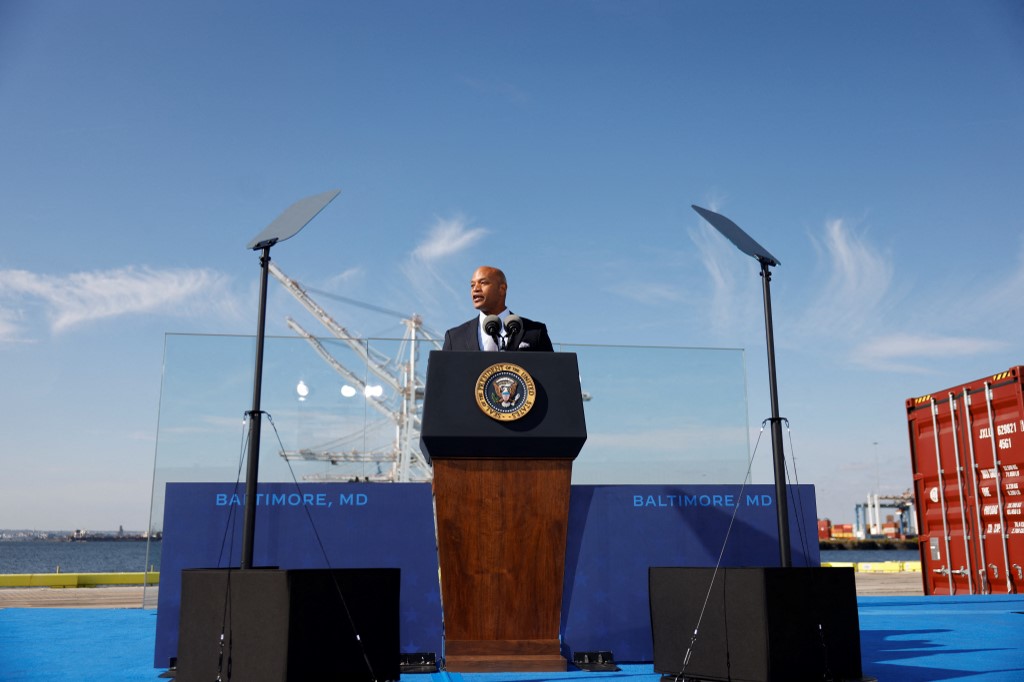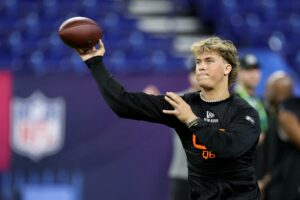Maryland Lawmakers Reduce Gov’s Tax Hike Proposal on Sportsbook Revenues
-
 Bookmakers Review
Bookmakers Review
- April 16, 2025

Maryland Governor Wes Moore had proposed doubling the tax rate that sportsbook operators pay on revenues, but the legislature rejected the drastic hike and instead has authorized a more modest increase.
A Modest Increase
Tax increases on sportsbooks’ adjusted gross revenues have become rather common as states continue to search for ways to narrow their budget deficits. However, increasing taxes on sports betting operators is not necessarily a panacea to cure what ails those shortfalls.
A tax hike can have a boomerang effect if those rates become so onerous that sportsbooks reduce or eliminate marketing, bonuses, and incentives to attract new customers while also forcing them to offer less favorable odds. The latter can cause their current clientele to look elsewhere, whether it be neighboring states or the offshore market.
Therefore, Governor Wes Moore’s budget proposal to double the tax that his state’s sportsbooks pay on revenues was met with a less than enthusiastic legislature. Maryland sportsbooks currently pay 15%, but instead of Moore’s 30% rate, lawmakers agreed on a 20% rate moving forward in the amended Budget Reconciliation and Financing Act of 2025.
The committee voted 13-5 to approve the 20% tax rate and rejected the governor’s proposed increase on casino table games from the prevailing 20% to 25% as Moore desperately tries to bridge Maryland’s looming $3 billion deficit.
The budget must be approved by April 7th, which means there is still time for Governor Moore to convince his colleagues in the legislature to agree to the 30% sportsbook tax rate he has requested. The same holds true for his proposed hike on casino table games.
Rate Hikes a Growing Trend
Ohio Governor Mike DeWine raised the tax rate from 10% to 20% on sports betting operators in the Buckeye State just months after the industry launched in 2023. But that too was short-lived as DeWine proposed another doubling of the rate to 40% during this year’s legislative session, but thus far that has been rebuffed by the legislature, and the prevailing 20% rate still stands as of this writing.
Illinois is another state that bumped its tax rate on sportsbook revenues in 2024 from 15% to a floor of 20% and a ceiling of 40% depending on the platform’s reported profits.
This year, when New Jersey Governor Phil Murphy announced his FY2026 budget, he proposed a rate hike on sports betting and iGaming revenues from 13% and 15%, respectively, to 25% on both. Yet, industry sources believe that increase will not likely pass muster with the legislature, but a more modest raise is a possibility.
“New Jersey is unique in this space because of the deep history with the casino industry; we birthed PASPA; we feel protective, and this is an industry that’s done well by us and done well by them,” the source said. “People get what that means. People are focused that this will end up somewhere around the same place, maybe a little higher, but keeps us in a competitive tax rate.”










